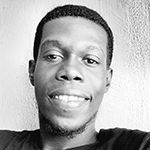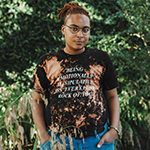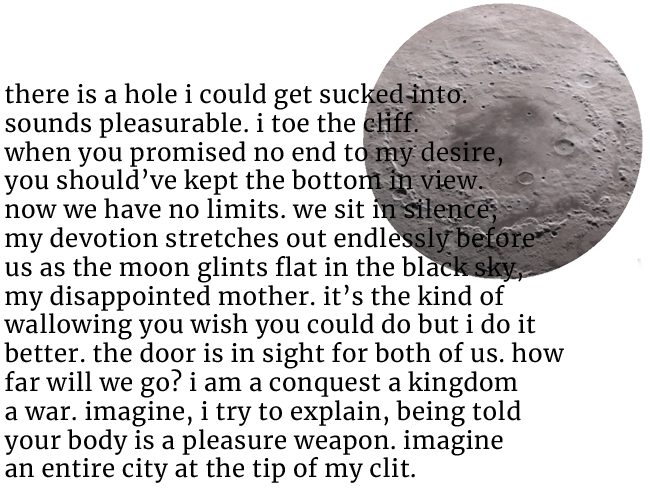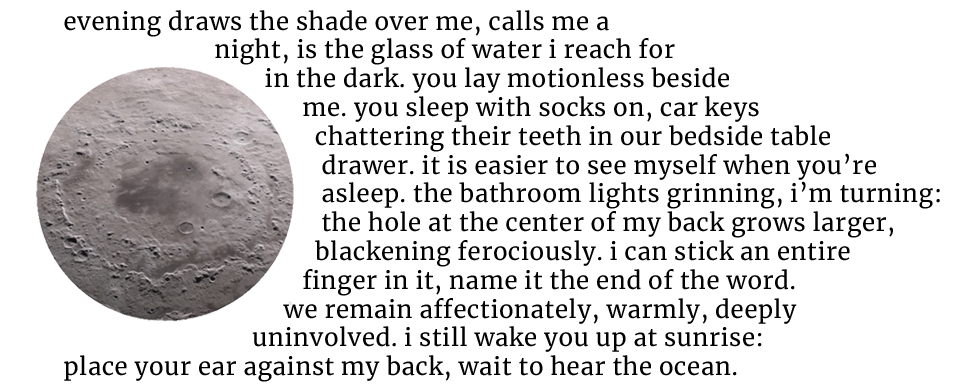Ghosts and Harms
There are no bars in my eyes, see.
My experiences keep staring
at the arts made by my footsteps.
Above this statement sits a history asking for a recall:
moments that became keloids.
My great grandmother’s lineage has the marks of abandonments
and her palms are memories of skived poppies.
I keep asking for the meaning of love and progress
and institution and preservation and memories
and gardenias and reformation and librarians
and reinstallation and liability and functionality.
My people have known the whips of wadding in water.
Where should I character in this story?
How should I tend and tender these mistakes?
The godheads and ghosts in collared coats keep burning
the evidences, burning the facts, and clipping the anabasis.
Is knowing the golden handle of voice?
Is knowing a rebellion conceived?
Our children are shielded from the colour of our teeth.
Our children don’t know.
And our children are walking with eyes open yet blind.
At my backyard I am growing a garden
where flowers remember.
I can mail you the scents.
I am arranging the un-deductibles into catalogues.
It’s such a burden caring alone, asking alone.
It’s such a drowning that you don’t care about these things and pasts.

Chinua Ezenwa-Ohaeto (@ChinuaEzenwa) is from Owerri-Nkworji in Nkwerre, Imo state, Nigeria and grew up between Germany and Nigeria. He has a Chapbook, The Teenager Who Became My Mother, via Sevhage Publishers. He won the Castello di Duino Poesia Prize for an unpublished poem, 2018 which took him to Italy. He was the recipient of New Hampshire Institute of Art’s 2018 Writing Award. His works have appeared in Lunaris Review, AFREADA, Poet Lore, Rush Magazine, Frontier, Palette, Malahat Review, Southword Magazine, Vallum, Mud Season Review, Salamander, Strange Horizons, One, Ake Review, Crannòg Magazine, The Question Marker, and elsewhere.

 BACK TO ISSUE
BACK TO ISSUE










